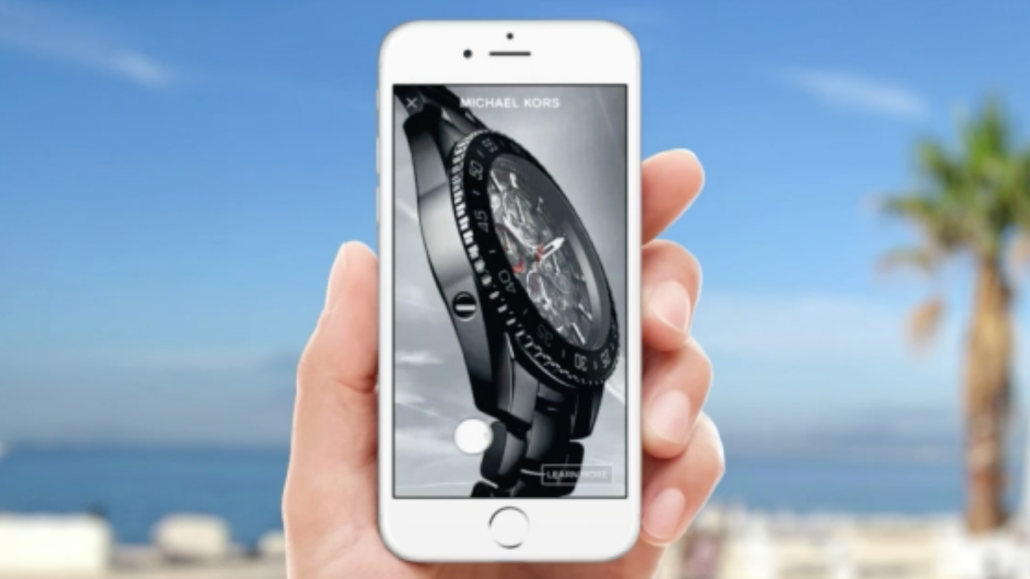Secure your place at the Digiday Media Buying Summit in Nashville, March 2-4

Facebook ads of the future are going to be difficult to ignore.
At Cannes Lions yesterday, the social network showed a prototype of a fully immersive ad experience that goes beyond links and carousels. Facebook created an advertisement that is an interactive, 360-degree experience that is navigated with the user’s finger.
Users won’t leave the app when they click on the ad. Rather, it would be a mini-version of the brand’s own website within Facebook. The idea is similar to Facebook’s Instant Articles, where it creates self-contained websites that users can visit without having to leave Facebook.
Here’s how it looks:
The video-rich format is aimed at attracting advertisers who would normally gravitate toward television to target an audience. In fact, it’s similar to Snapchat’s so-called “3V” focus of using vertical video to capture users’ attention.
Facebook is smartly betting big on mobile advertising. For the first three months of 2015, mobile ads raked in 73 percent of the company’s ad revenues — a sharp increase from 30 percent during the same time period in 2013.
With all that money going to mobile, Facebook’s chief of product Chris Cox told The Wall Street Journal that it’s going to closely examine the future of what advertising on these small screens will look like.
“You’re starting to see a lot of new interactions [on mobile]. We’re trying to spend a moment looking at some of these trends and imagining what they’ll look like in next few years,” he said.
Facebook didn’t say when the ads will roll out, but Recode guesses it won’t be “too far off” if they’re presenting it to advertisers.
Photo courtesy of Facebook.
More in Media

From feeds to streets: How mega influencer Haley Baylee is diversifying beyond platform algorithms
Kalil is partnering with LinkNYC to take her social media content into the real world and the streets of NYC.

‘A brand trip’: How the creator economy showed up at this year’s Super Bowl
Super Bowl 2026 had more on-the-ground brand activations and creator participation than ever, showcasing how it’s become a massive IRL moment for the creator economy.

Media Briefing: Turning scraped content into paid assets — Amazon and Microsoft build AI marketplaces
Amazon plans an AI content marketplace to join Microsoft’s efforts and pay publishers — but it relies on AI com stop scraping for free.





